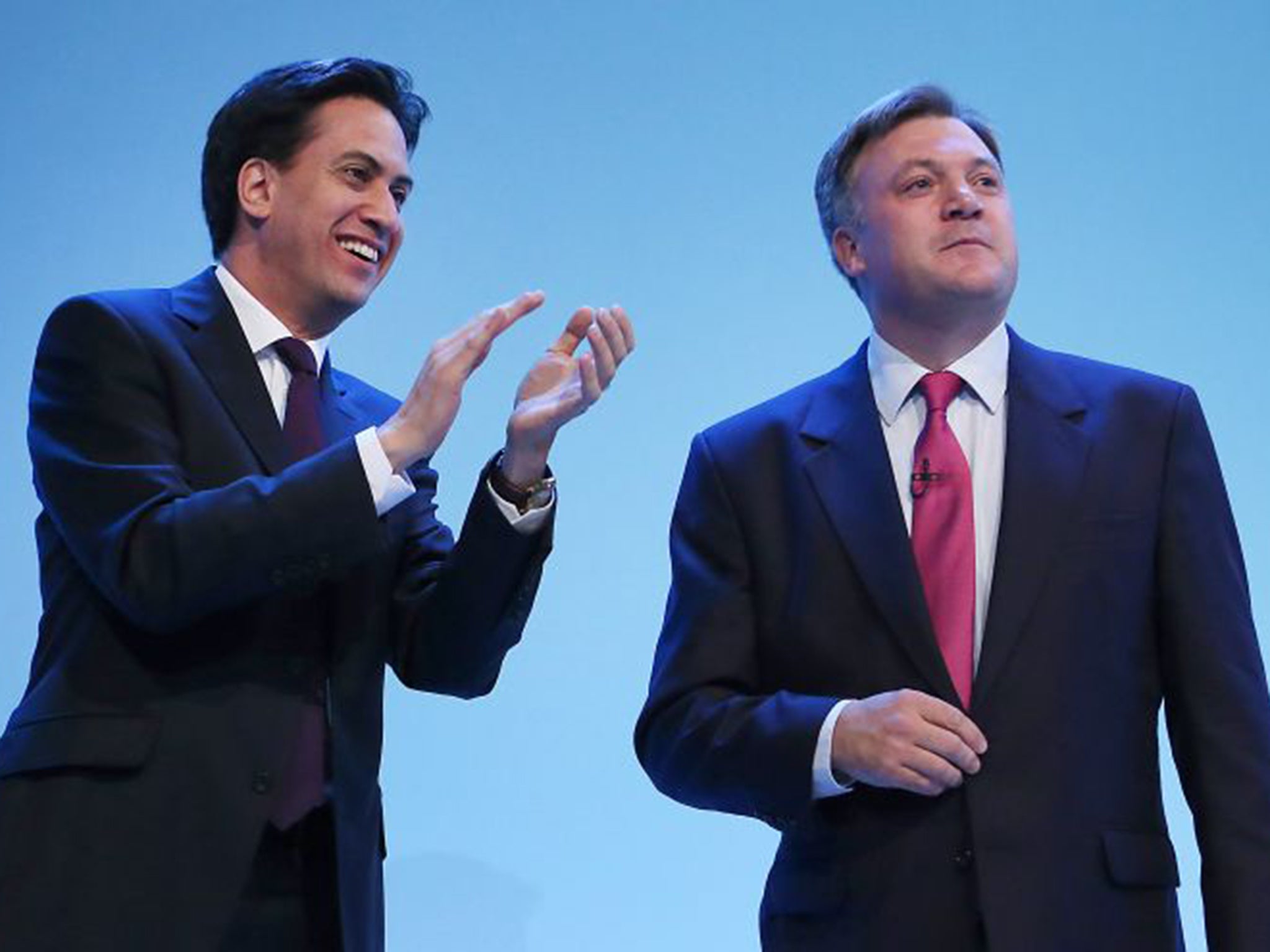Only Ed Miliband believes he can win the election by taking on big businesses - including the ones that own Tory newspapers
Business people hear the Labour leader's rhetoric as hostile to them and to creating jobs


Ed Miliband was roasted by the Conservative press last weekend. The Mail on Sunday had a front-page headline, “Labour knives out for ‘loser’ Red Ed”, on the basis of almost nothing.
More of a stir was caused by The Sunday Telegraph, which led with “Boots chief: Labour win would cause ‘catastrophe’”. The comments by Stefano Pessina set off a week of stories about Labour’s relations with business, including shadow Chancellor Ed Balls’s embarrassment on Newsnight when he couldn’t remember the surname of the (retired) business person he had been sitting next to earlier that evening.
“It wasn’t what we planned, but we welcome the definition it gives us,” said one Labour spokesman. He would, wouldn’t he? That is what I would say if I were a Labour press officer. It is the obvious way to try to turn an adverse story to the party’s advantage. Sadly for Labour, it is not a press officer’s device, it is the leader’s strategy. Ed Miliband genuinely believes that he can win the election by taking on big companies that are household names, including the ones that own Tory newspapers.
As far as I can tell, he is almost alone in this. I do not think that anyone else in the Shadow Cabinet believes in the Ed against Goliath plan, except for Jon Trickett, deputy chair of the party, and possibly Lucy Powell, who ran Miliband’s leadership campaign and who is now the vice-chair of general election strategy. Balls, a serious economist, certainly does not. I do not think that any of his staff and advisers believe in it, again with a couple of possible exceptions, who are invited to contact me in confidence.
Asked by the Financial Times last week if he ever doubted that Labour had chosen the right brother, Miliband replied: “Definitely not. On the issues that matter most I’ve been proved right: on the cost of living, on responsible capitalism, on the challenge of the vested interests, inequality. I think Britain needs a Labour government and Britain needs a Labour government led by me.”
It was a surprisingly confident assertion, which failed to conceal his insecurity. So obsessed is he with vindicating his decision to run against his brother that he feels he cannot allow any expression of family feeling because it would be interpreted as weakness. And yet he is also arrogant enough to think that, by doing what he thinks is the brave thing of “standing up to” Rupert Murdoch, the rest of the Tory press, the energy companies and now Boots, he will prevail.
While Balls and Chuka Umunna, the shadow Business Secretary, have been assiduously cultivating business people, Miliband’s messianic vision of himself as a tribune of the people against “powerful forces” means that Labour is going into a second election with not a single public supporter among the chief executives of large companies. There was a reason for it last time: in 2010, many business leaders were worried that the government had lost control of the public finances. They were wrong, but you can see why they thought what they did.
This time, business really should be backing Labour. Balls’s fiscal policy is more growth-friendly than George Osborne’s, and Labour is more firmly committed to membership of the EU. But business people hear Miliband’s rhetoric as hostile to them personally and to the making of money and the creation of jobs generally.
It is also possible to understand why Miliband thinks he is on to a winner: since the recession, there has been a stronger than usual undertow in public opinion against the rich and powerful. That does not mean, however, that people want their leaders simply to reflect their resentments, because they also know that a dynamic market economy creates the wealth they want to share. They know, too, that a crackdown on tax havens is the first refuge of any politician.
Most people have a negative opinion of Murdoch, and took Miliband’s side when the Daily Mail unfairly attacked his father. But The Sun and the Mail are still Britain’s biggest-selling newspapers. The Sun wasn’t really wot won it on its own in 1992, but it magnified people’s hostility to Neil Kinnock. And newspapers may not be as influential as they were, now that people get their news from the internet, but that’s no comfort to Labour when the Tories are outspending them on Facebook ads.
Maybe you can run an outsider campaign against business interests and most of the press if there is a sense of injustice on every street corner waiting to be mobilised by a cohort of activists inspired by a charismatic leader. I can see elements of that in Ukip, the SNP and even, in their promise of a better parallel universe, the Greens. Maybe that is how Miliband sees Britain and himself. But I don’t think that is how the British are going to see him on 7 May.

Join our commenting forum
Join thought-provoking conversations, follow other Independent readers and see their replies